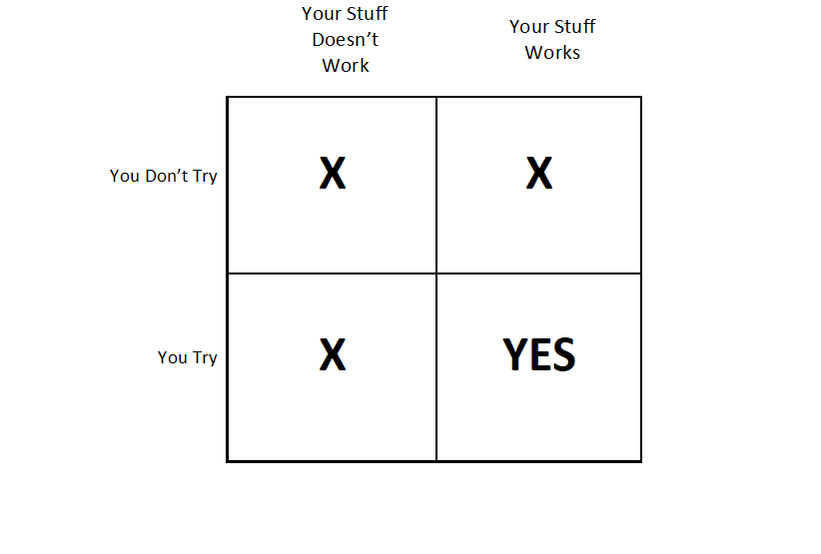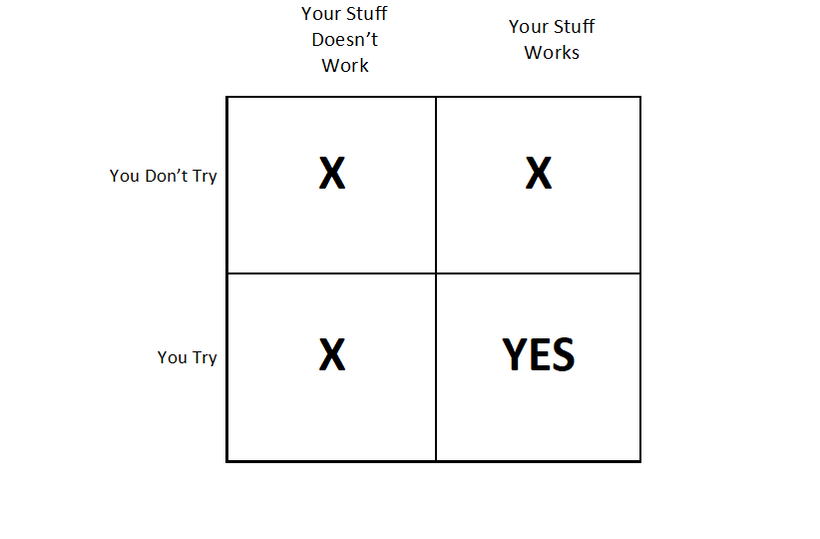|
Episode 118 - What Price Slavery? The Thursday Thesis - 27/09/2018 If someone offered you the chance to buy yourself a job as a slave, to be on-duty 24/7, required to respond to the pettiest of things without delay, to never have a day off or to leave the office; to be tracked, followed and recorded everywhere you went, records kept of everyone you spoke to, and everything you wrote or read, what would you say? You wouldn’t take that job, would you? I jumped at the chance, myself – as most people have. For me, it began with brick-sized Orbitel mobile phone, back in the early 90’s. A couple of years later it was The Internet and the speed of a roaring 14K dial-up connection. As a relatively early adopter I even thought I was treading boldly into the future! Over time the technology has improved: faster data speeds, mobile apps, GPS and a host of other gizmos. Analogue phones have given way to digital networks, second-generation, 3G, 4G, soon we’ll have 5G networks promising better connectivity and coverage, faster speeds and lower cost. And it’s gradually dawned on me – as it has for others – that I am little more than a slave to my devices. A slave who pays to be enslaved, because every month EE take money from my bank account - they have written permission from me to do exactly that. And every time I use my phone or my laptop I provide data to EE, BT, Google, Mozilla, Microsoft and just about everybody else, it seems. My data – and yours – is used to develop algorithms that are supposed to make things better for us. But here’s the thing: it doesn’t make things better – it makes things worse, because all the harvested data is used to develop insight into us, our thoughts, our beliefs, relationships. Where we go, how we move, and what we say is used to develop better programming for artificial intelligence – AI – that learns and evolves faster than organic life-forms can. The Big Brother state of Orwell’s 1984 has nothing on the current state of affairs. Orwell’s horrors were the Telescreens, which watched and listened from their place on the walls: ours do it from our pockets and handbags. Personally, I have a ton of issues with mobile phones, here are a few of them:
We slaves pay out masters with our taxes and our monthly direct debits. We are slaves who worship our masters Slaves who are anxious when parted from our masters. Slaves who crave the sound of our masters’ voices. Slaves who willingly pay to be enslaved. If you thought that your mobile phone would set you free of the need to be in the office, or would mean you never had to wait in for that special person to call, then I can guarantee you won’t have seen it coming. So, here’s a challenge – I call it the Freedom Day Challenge - can you go for one day, just 24 hours, without your phone, PC, Mac or tablet? Any takers? If this got under your skin, made you smile or pissed you right off – hit the like button to Share it with your friends, family, and anyone else.
Email me at [email protected]
2 Comments
The Thursday Thesis - 20/09/2018 Every so often we see something in a new way: our perspective imperceptibly shifts, snapping issues and puzzles into pin-sharp focus. You probably know how it feels, because we all have moments of clarity and revelation: problems evaporate, conflicts ebb, and our way is clear at last. It’s that sudden “Aha!” moment...when you and I “get it” and know that we can never go back to our old ways – that’s what I’m talking about. I had one a while ago – a massive, punch-you-in-the-face “Aha!” moment – at a seminar for entrepreneurs. The speaker was talking about the perennial fear of failure that everyone has. He told us his story of having a great idea for his business but holding back from getting started. He was afraid that it might not be perfect and the business would fail, exposing him as a nincompoop and proving right everyone who had told him he’d never amount to anything. Perhaps you can relate to that fear? Despite being a successful serial entrepreneur with multiple businesses which earn him millions of pounds, he is still subject to the fear of failure. He encouraged everyone in the room to take action on the business they wanted to start, on that great idea they’d had. And, as he talked, he drew a little picture that explained something with a clarity and precision that I’d never quite had before. He started with a big square, then divided it into four smaller squares, forming a 2 x 2 matrix. Above the left column he wrote “your stuff doesn’t work”, and above the right “your stuff works” – nice and simple. Then he wrote next to the top line of the grid “you don’t try”, and next to the bottom line “you try”. Then he said “if you stay in the top line – where you don’t try – then it make no difference if your stuff works or not, because you will fail by default”. He drew thick black crosses into the two squares of the top line. Then he continued, his voice punching the message into my ears “Only in the bottom line can you win. If your stuff doesn’t work at least you know it doesn’t work: you can either improve it and make it work, or you can move onto something else that could work”. He drew a black cross in the bottom left square, paused and said “But if your stuff works, you get a “YES” here in the bottom right square”. That was when the penny dropped: only when you try can you have a chance to achieve. The possibility matrix brought it all home with a clarity and force that had me speechless – I “got it” like I’d never “got it” before. I think it was the absolute certainty of the top line that did it; the 100% certainty that if I never tried I couldn’t win. There was no room for doubt in the starkness of that top line: not trying was the very best way to guarantee failure – how had I never seen it so clearly before now? And that bottom line? Well, that just looked like a coin toss – heads or tails – and if I called it right I could keep the coin and flip another coin. If I called it wrong I could flip the coin again, over and over, with an infinite number of coins. But only when you try can you ever do anything. I’m constantly using this idea when teaching guitarists to improvise: often they are afraid of playing a wrong note that they are paralysed into absolute silence – unable to play any notes at all! They’re stuck in top-line thinking, and my job is to move their thinking into the bottom-line, where there is at least a chance of success. And I’ve come to understand that that’s what life is all about – giving ourselves a chance to succeed, but that can only occur if we are prepared to try. We must be prepared to risk failure in order to give ourselves a chance of success. Please Like & Share The Thursday Thesis - it's sure to annoy someone!
The Thursday Thesis - 13/09/2018 Did you ever see one of those old Road Runner or Bugs Bunny cartoons? You know, the ones where a character flies off a cliff and pauses in the air as the full force of their situation hits them...just before they plummet earthward? There’s a bemused look of incomprehension that they wear just before there’s a loud “P’tyooooh!!” sound... That’s how it feels when you’ve finally completed one of your massive goals – one of your life’s great ambitions. You’ll have had a story in your mind of nailing your big thing – of taking the medal or lifting the prize - but you probably won’t have created a story for what you were going to do after you nailed it. I had that feeling when I finally published my first book “9 Weird Things Guitarists Do - The Common Myths & Misconceptions that Poison Your Playing - and How To Defeat Them” back in 2016.For months I’d written and edited, edited and written, refined and tweaked it until it was as good as I could get it. I’d striven for perfection, but ultimately decided that imperfect and done was better than perfect but never published. Man, I felt like I’d just bench-pressed the whole damned World when the book went live and began to sell on Amazon. But with the book published and my box ticked, I began to drift; a curious aimlessness set in on me as I failed to begin the next book straight away, in order to sustain my momentum as a writer. Of course, I still had this blog so I could con myself into thinking that I was still being productive, and I began to invest in property at around this time, so I wasn’t being lazy or slacking-off – honest, Guv! So what happened? The best way I can make sense of it is that I’d simply ran out of story. I had a plan to write the book and to publish it, and that was great – except it was also what was wrong. My story only took me as far as it went, and as soon as I reached that point everything stopped. Of course, I should have started to write the next book as I completed 9 Weird Things, and I should have planned to continue with the same daily ritual of writing 500 words per day. I should have written it, but I didn’t – not for a while. And – for the record - this world doesn’t deal in shoulda, woulda or coulda, because it’s too busy and too indifferent to listen to you and I making bullshit excuses for our cluelessness pleading to be let off, just this once. Ditto for completing my first marathon: I ran the course, sauntered over the line and promptly ceased to run for several weeks. My story got me to the start line and over the 26-and-a-bit miles, but after that – nothing. Zilch, nada, bugger-all, zip, squat. Now you’d be forgiven for thinking that I’d know better than to let my plan peter out as I crossed the finish line – but that’s what I did. I’m not an isolated case of stupid, either, because we all run out of story unless we have a plan that extends beyond successfully achieving our goal. Whether you’re getting married, running a marathon or playing a new song on your guitar, you’d better have a story that continues after the event is over. If you don’t have an ongoing story, all you’ll have is a sudden and unpleasant sense of running off a cliff-top and finding that the emptiness beneath you isn’t pushing you up. “P’tyooooh!!” won’t be far behind. So ask yourself, as you head off towards your Big Thing – “what are you going to do after you get there?”, because loitering in mid-air is not an option, trust me. Please Like & Share The Thursday Thesis - it's sure to annoy someone!
The Thursday Thesis - 06/09/2018
I am deeply attached to my “To Do” list - after all, we have history together. We’ve been through everything, from getting sober to getting ripped; from getting hitched to coming unstuck – well, we’ve done it all, my list and me. You may know someone like that: they have a list for everything and everything has its list... So I’m going to confess to being stupid (again!) and drag a glaring omission out into the light, so that I can remind myself of a great idea that dropped in my lap nearly twenty years ago, but I was too naive and stubborn to pick up and use. The idea is ever-so-simple, as the best ideas usually are, though their value often slips past us in the first, or even the fifty first, case. Don’t go straight to your To Do list; instead, start a new list. This is not your To Do list version 2.0 – this is your Who Do list. This is the list where you write down what you want done, then assign that work or task to someone other than yourself. So the Who Do list asks you “who can you get to do it?” instead of “how are you going to do it?” and that’s a real game-changer. Dump everything onto your Who Do list, first – assign the tasks that other people or software can do at least as well as you can (preferably at lower cost, too) and only deal with the jobs and activities that: a: only you can do b: are too expensive to farm-out c: you really love to do I plan to get really good at this over the next few years – I just wish I’d picked up on it first time around, because I’d now be an expert with a Who Do list, not a overworked muppet with a Dead Sea Scroll of a To Do list. What tasks are you going to move from your own To Do list and onto your Who Do list? Let me know if this works for you, vi [email protected] |
Share it with your friends
It's Like This...The Thursday Thesis shares ideas which I think are worth spreading. Archives
May 2022
Categories
All
All content on these pages is the intellectual property of the author, unless otherwise stated, and may not be used in any form or reproduced under any circumstances without the authors permission.
|





 RSS Feed
RSS Feed